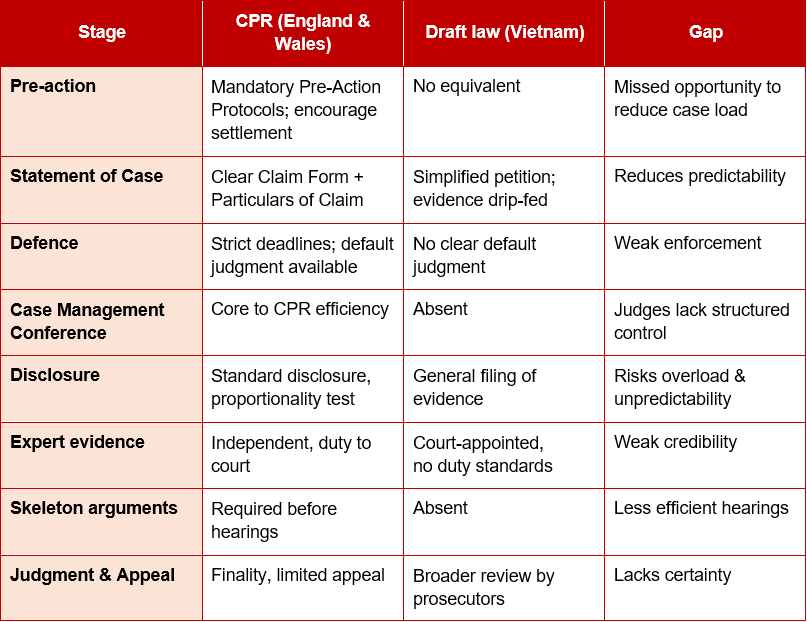Vietnam’s Draft Law on Specialised Courts: Lessons from England’s CPR
LNT & Partners
2nd November 2025
Vietnam is currently considering a draft law on specialised courts for its planned International Financial Centre (IFC). The ambition is clear: to provide an independent, reliable forum for resolving high-value commercial disputes. However, in its current form, the draft contains several procedural shortcomings that risk undermining investor confidence.
Please Login or Register for Free now to view all updates and articles
In addition to free-to-view updates and articles, you can also subscribe to the full Legal Centrix Vietnam Service including access to:
- Overview notes on the law
- Thousands of high quality translations of legislation covering all key business areas
- Legal and tax updates
- Articles on important legal and tax issues
- Weekly email alerts
- Sophisticated web platform and search
Legal Centrix is trusted by top law and accounting firms.
LNT & Partners
- Vietnam
- http://lntpartners.com/
LNT & Partners is a full-service independent Vietnam law firm, which focuses on advisory and transactional work in the areas of corporate/M&A, competition, pharmaceutical, real estate, infrastructure and finance as well as complex and high-profile litigation and arbitration matters.
The team’s commitment to professionalism, quality advice and client care has earned the practice recognition from multiple recognized international publications, including the Legal 500, Chambers and Partners and IFLR1000. It is no surprise that numerous Fortune 500 companies have chosen LNT & Partner as their dedicated legal adviser.
Click here to view the author's profile
Author

-
LNT & Partners
Vietnam
Tags
Related Content
- No related content
Recent updates
- Decree 356/2025/ND-CP On Detailed Regulations On A Number Of Articles And Measures For Implementing The Law On Personal Data Protection
- Vietnam: Mediation in Intellectual Property disputes
- Vietnam: Recent Regulations On Auctioning Land Use Rights For Residential Land Allocation, Capital Contribution Activities in Credit Institutions, and Personal Data Protection
- Vietnam: Third-party funding in the resolution of investment-related disputes: A financial risk-reduction method for doing business with Europe
- Vietnam: Shareholders’ agreements indirectly recognized via beneficial ownership
- Vietnam: Electronic signatures in investment registration dossiers: Inevitability and practical challenges


